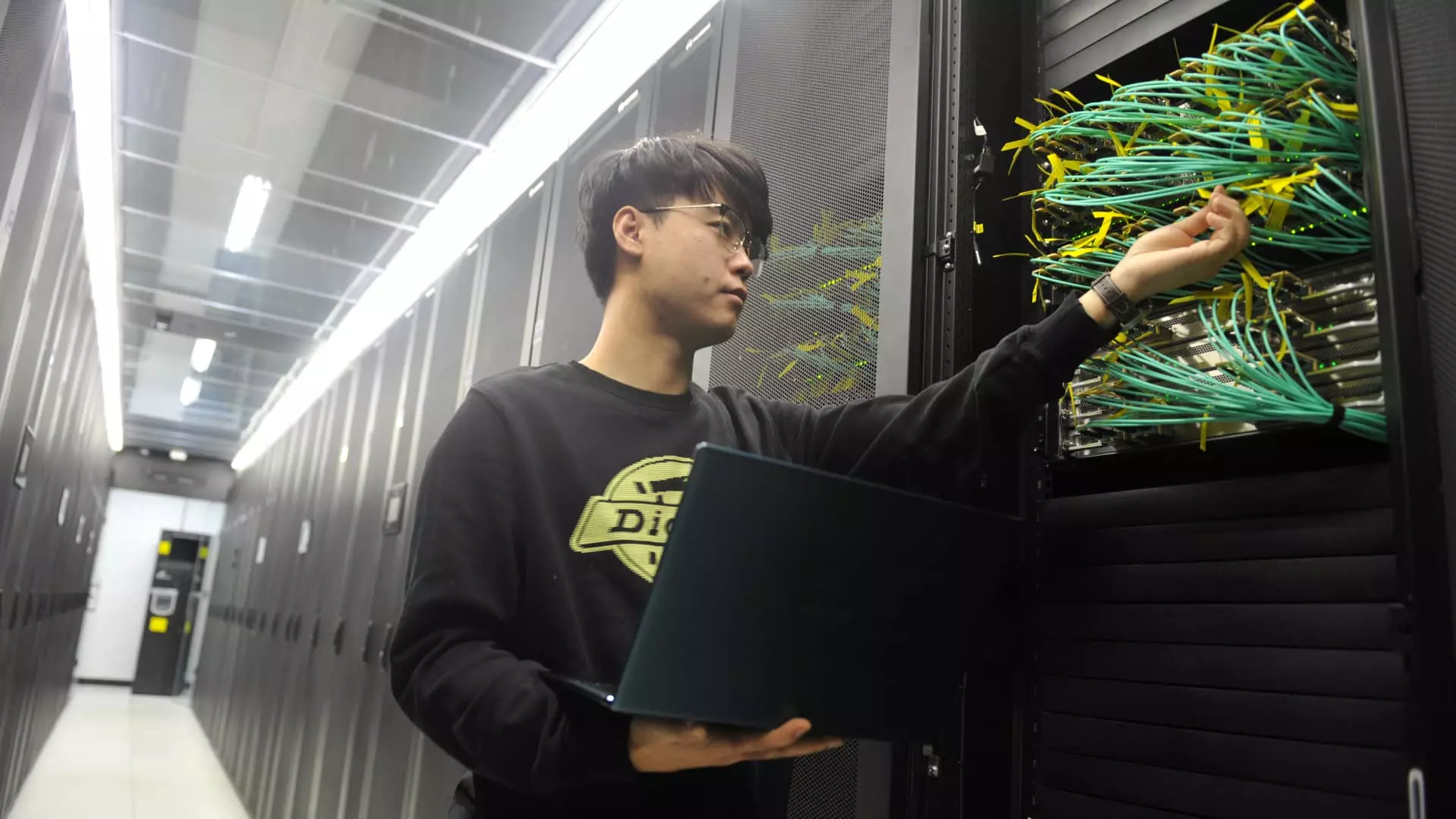In the swirling maelstrom of escalating U.S.-China trade tensions, a profound transformation is unfolding within the tech landscape, particularly with generative artificial intelligence (AI). This disruptive technology is quickly becoming a fundamental element of economic strategy for China, allowing companies to navigate the treacherous waters wrought by international tariff wars. Analysts are predicting that certain Chinese businesses, primarily involved in AI, are set not only to survive this tumultuous phase but potentially thrive as they pivot to enhance their technological capabilities. This scenario is far more than speculative; it’s a critical response to external pressures that have the potential to reshape industries.
AI is becoming the linchpin in China’s strategy to mitigate the implications of trade disputes, and here’s where the rubber meets the road. Bernstein analysts have indicated that sustained demand for AI technologies is anticipated, driven by a growing acknowledgment amongst various companies that AI is now a core necessity for competitive growth. This acknowledgment is not just about staying relevant; it is about survival in an increasingly digitized world. The embrace of DeepSeek’s generative AI capabilities showcases a broader trend where a proactive approach to integrating AI can yield substantial cost savings while simultaneously bolstering corporate earnings—a remarkable feat in the face of falling economic forecasts due to tariff escalations.
The Prominence of Key Players: Kingsoft and Kingdee
In the spotlight are two notable firms: Kingsoft Office and Kingdee, which are poised for notable growth in the AI sector. Kingsoft’s WPS word-processing application, now empowered by AI capabilities, has hit an impressive milestone with nearly 20 million users in mainland China. This development is a testament to the rising appetite for localized solutions over foreign alternatives, especially amidst rising tariffs. Kingdee is also shifting gears, declaring its intent to redefine itself as an Enterprise Management AI entity. Such strategic pivots are not just business maneuvers; they embody a sense of urgency—a necessity in adapting to rapidly changing market dynamics.
Both companies are emblematic of a broader paradigm shift. Rather than languishing under the weight of geopolitical tensions, they are turning these challenges into opportunities. In fact, a Federal report indicates that China’s governmental intention radiates from the push to promote AI as an indispensable tool for economic development. This strategy aligns with domestic resilience, reflecting a commitment to fostering local innovation while reducing the dependency on U.S. technologies.
The Cloud Computing Contingent: An Untapped Goldmine
Amidst the chaos, sectors like cloud computing remain remarkably unscathed. Analysts at Nomura have identified the cloud and internet data center industry as resilient against tariff-induced stress. With companies like China Mobile and GDS leading the charge, the growth trajectory of these firms appears unimpeded by trade tensions, largely due to their domestic-centric revenue models. The anticipated soaring demand for data infrastructure—a necessary underpinning of an AI-driven economy—projects a strong utilization rate for data centers in the upcoming years.
This demand signals a critical investment opportunity in technologies that support enterprise operations locally. It’s a refreshing pivot back to foundational tech resources that could stimulate domestic growth. If anything, the trade disputes are fuelling a renewed urgency to bolster domestic capabilities—an outcome that could inadvertently position China as both a manufacturing and AI hub.
The Reality of Trade Wars: Protectionism vs. Innovation
As China retaliates against the latest wave of U.S. tariffs, the landscape becomes even more complicated. The ongoing tit-for-tat tariff strategies reflect not just economic disagreements but a broader ideological battle. The trade war threatens to inhibit collaboration and could stifle innovation. Nevertheless, a robust domestic market proves to be a silver lining. As global giants face increasing scrutiny and potential sanctions, there lies a golden opportunity for Chinese companies to populate the space vacated by these multinational enterprises.
The notion of a “new critical technology” is not just rhetoric but an opportunity for China to redefine its economic trajectory. The government’s prioritization of investing in AI and digital infrastructure serves as an economic shield against the unpredictable nature of international trade relations. In this light, the proactive, innovation-driven responses from companies like Kingsoft and Kingdee symbolize a broader resilience woven into the fabric of Chinese industry.
With the ongoing U.S.-China trade standoff thrusting global markets into confusion, the reality is that the stakes are higher than ever. Companies that adapt quickly and effectively—leveraging local resources and technological innovation—may not only survive but emerge as leaders in defining the future economic order. Embracing the generative AI wave stands as a testament to the resilience of Chinese firms amidst challenging geopolitical landscapes; the game is now not just about endurance but also about forging pathways to unprecedented economic prosperity.

